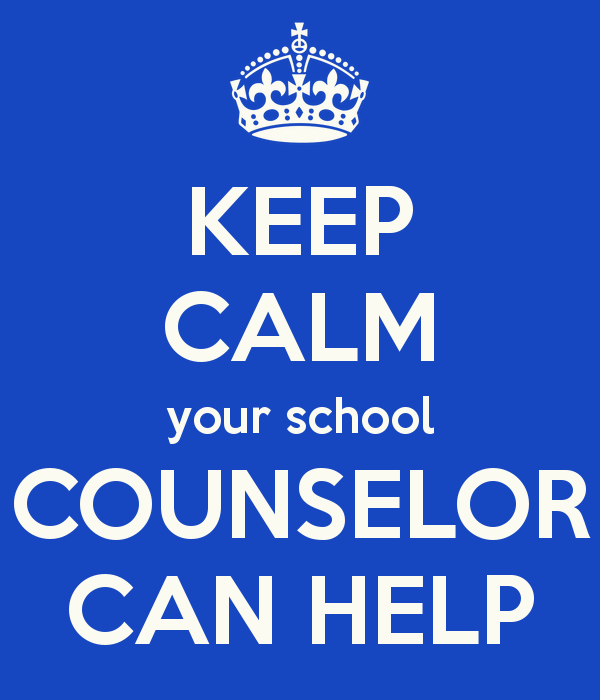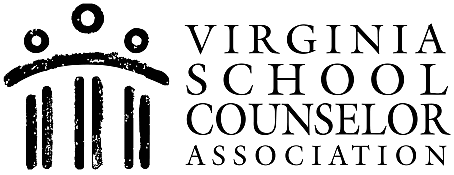History
This history compiled from records compiled by Dr. Norma Day Vines (June 2, 2001) and past VSCA Presidents since 2005.
In 1952, the American School Counselor Association (ASCA) was founded to support the growing needs of school counselors through advocacy, professional development, research and professional literature. On April 18, 1962, the Virginia School Counselor Association (VSCA) became one of the first state chartered divisions of ASCA (along with Hawaii, Ohio, and Utah.) Mary Ashton of Fairfax County served as the first president of the Virginia School Counselor Association. VSCA was also a division of the Virginia Personnel and Guidance Association, which is now Virginia Counselors Association. Divisions existed within VSCA for elementary, middle, secondary and post-secondary levels. Each had a Vice President overseeing each level within VSCA. 
In 1972, the Virginia Elementary School Counselor Association (VESCA) established its own constitution and elected its own President but by 1977, VESCA and VSCA merged back into one organization. By 1973, school counselors in Virginia could obtain a provisional certificate without prior classroom teaching experience. In June of 1979, VSCA sponsored the Elementary Guidance Conference in Richmond, Virginia. Later that year, Virginia received the International Year of the Child Award at the American Personnel and Guidance Association conference in Las Vegas, Nevada. In 1981, The Virginia General Assembly recommended a ratio of one counselor to every 500 students. Shortly thereafter, the requirements for school counseling in Virginia were amended to include two years of successful teaching experience and provided separate certification for elementary, middle and secondary levels. The Virginia Board of Education passed a resolution in 1986 that would ensure that elementary school counselors would be in every school by the 1989-1990 school year. The Virginia Board of Education also required that each member of the counseling staff would provide 60% of their time in direct service to students.
In 1991-92, the federal Elementary Demonstration Act supported elementary counselors and provided funding for school counselors pre-K - 12. But in 1992, the Parent-Teacher Association (PTA) proposed legislation that opposed “therapeutic counseling” on school property without informed consent of a parent. VSCA lobbied against this legislation and provided information about the role of the school counselor to key stakeholders. In 1997, the Virginia Board of Education modified the Standards of Accreditation to allow local school districts to hire reading specialists instead of elementary school counselors but VSCA rallied against this modification. In 1998, the Virginia General Assembly overwhelmingly passed two bills to make counseling part of every public elementary school in the state. However, the governor vetoed both bills.
During the 1999-2000 school year, Virginia’s school counselors launched the Millennium Mandate and the Virginia General Assembly reinstituted language in the Standards of Accreditation mandating elementary school counselors. In 2004, the state hired Dr. Sylinda Gilchrist-Banks as the first School Counseling Specialist for the state of Virginia. In 2006, a statewide survey was launched to determine the professional development needs of Virginia’s School counselors. Results indicated that school counselors were aware of and understood the ASCA National Model but were unsure how to implement it. Also, VSCA approached the VCA Executive Director and VCA President to explore options to help offset the cost of a consultant to assist with the conference, website, and other administrative tasks. VCA directed to VSCA to raise the price of dues to cover the additional expenses, but VSCA decided to maintain the cost of dues and explore other options. By 2007, the Virginia School Counselor Association membership reached over 1300 members. Representatives from VSCA attended meetings across the state to advocate for testing and/or assessment coordinators that would relieve school counselors of testing responsibilities. Despite voting that supported this position at a ratio of 1 testing coordinator to every 1000 students, the funding was not available. In 2008, VSCA tasked a writing team to develop a manual to assist school counselors in developing a comprehensive school counseling program, resulting in the publication and usage of the Virginia Professional School Counseling Manual. By 2009, the School Counseling Specialist position had been eliminated at the state level. In 2010, VSCA created a task force to explore the options of maintaining separate membership from VCA and hired RunMyClub to assist in conference registration, website upkeep, and membership management maintained by designees of the VSCA Board. Later in 2011, VSCA membership dropped to below 800 members. In the fall, the VSCA Board voted unanimously to pursue independent membership separate from the Virginia Counselor Association and informed the membership in December. In April of 2012, VSCA amended its by-laws, removing itself as a division of VCA and allowing independent membership to VSCA. The membership voted (51.5%) to accept the amendments and the dues changed. By July of 2012, VSCA began its new membership structure. | Not a Join us today!
JOIN NOW |

